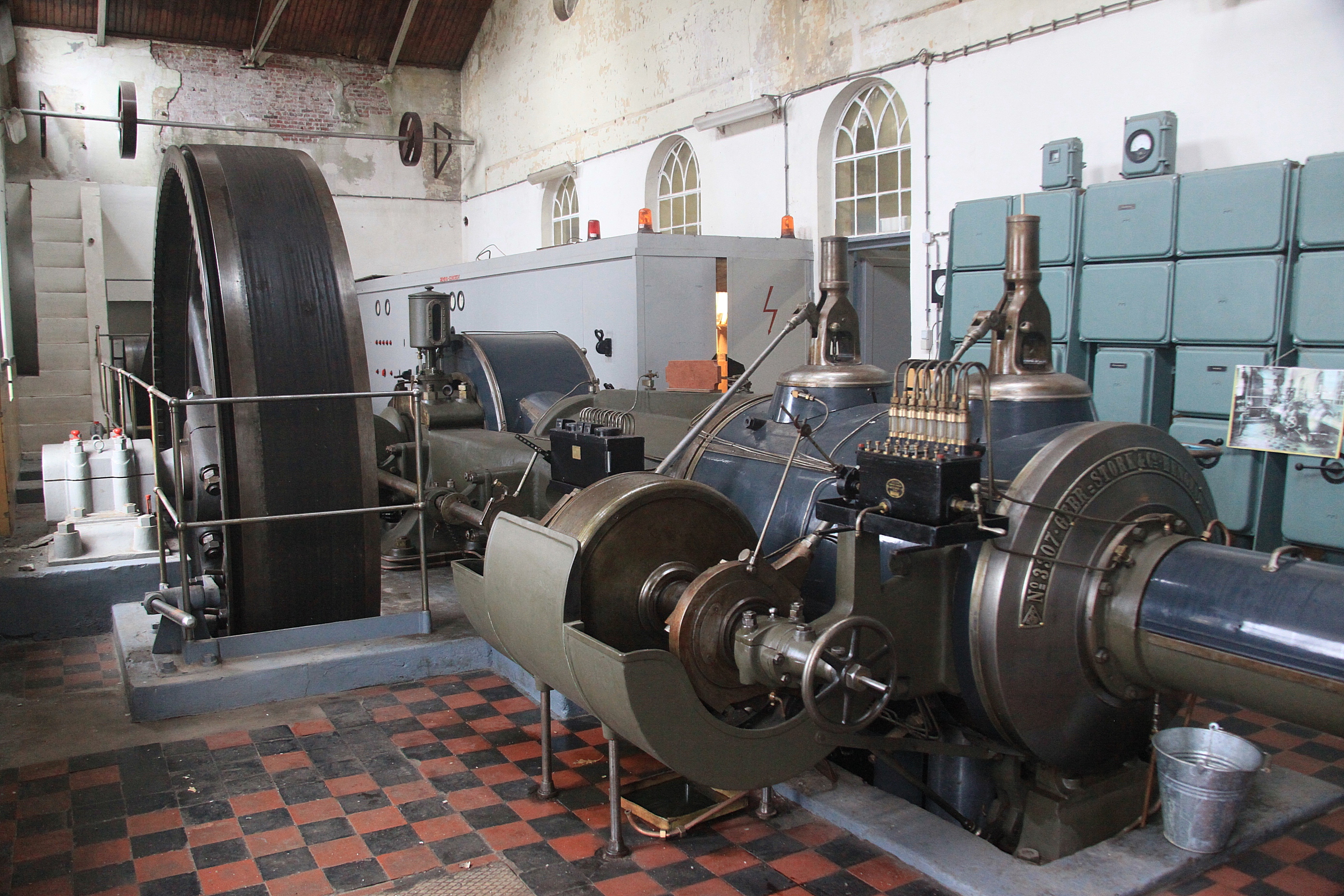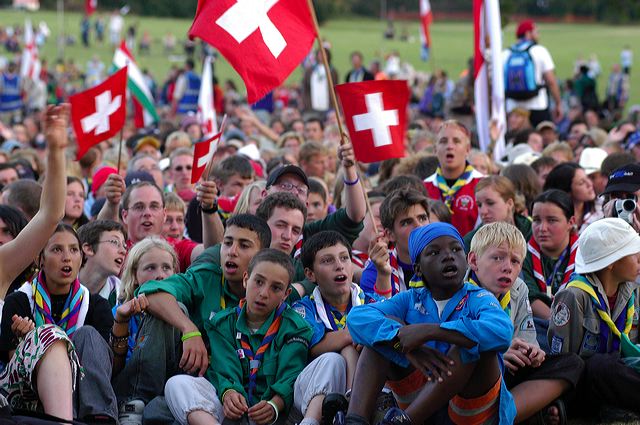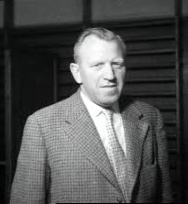|
Oude Pekela
Oude Pekela ( Gronings: ''Olle Pekel''; ) is a town in the Dutch province of Groningen. It is located in the municipality of Pekela, about 5 km southwest of Winschoten. It was established to exploit the peat in the area. During the 19th century, it was known for its maritime transport. During the 20th century, Oude Pekela became the centre of the cardboard and potato starch industry. History Peat colony In the 1590s, the Friesche Compagnie (Frisian Company) was founded to exploit the peat in the area. In 1599, the land around the River Pekel A was bought and subdivided in 101 lots. Oude Pekela was established to house the workers. The town is named after the Pekel A, and is a linear settlement along the river which has been canalised and renamed . In 1635, it became part of the , and was controlled by the city of Groningen as a colony. In 1704, the settlement was split into Oude Pekela (Old) and Nieuwe Pekela (New), because a second church was built. In 1801, all towns an ... [...More Info...] [...Related Items...] OR: [Wikipedia] [Google] [Baidu] |
Netherlands
) , anthem = ( en, "William of Nassau") , image_map = , map_caption = , subdivision_type = Sovereign state , subdivision_name = Kingdom of the Netherlands , established_title = Before independence , established_date = Spanish Netherlands , established_title2 = Act of Abjuration , established_date2 = 26 July 1581 , established_title3 = Peace of Münster , established_date3 = 30 January 1648 , established_title4 = Kingdom established , established_date4 = 16 March 1815 , established_title5 = Liberation Day (Netherlands), Liberation Day , established_date5 = 5 May 1945 , established_title6 = Charter for the Kingdom of the Netherlands, Kingdom Charter , established_date6 = 15 December 1954 , established_title7 = Dissolution of the Netherlands Antilles, Caribbean reorganisation , established_date7 = 10 October 2010 , official_languages = Dutch language, Dutch , languages_type = Regional languages , languages_sub = yes , languages = , languages2_type = Reco ... [...More Info...] [...Related Items...] OR: [Wikipedia] [Google] [Baidu] |
Batavian Republic
The Batavian Republic ( nl, Bataafse Republiek; french: République Batave) was the successor state to the Republic of the Seven United Netherlands. It was proclaimed on 19 January 1795 and ended on 5 June 1806, with the accession of Louis Bonaparte to the Dutch throne. From October 1801 onward, it was known as the Batavian Commonwealth ( nl, Bataafs Gemenebest). Both names refer to the Germanic tribe of the ''Batavi'', representing both the Dutch ancestry and their ancient quest for liberty in their nationalistic lore. In early 1795, intervention by the French Republic led to the downfall of the old Dutch Republic. The new Republic enjoyed widespread support from the Dutch populace and was the product of a genuine popular revolution. However, it was founded with the armed support of the French revolutionary forces. The Batavian Republic became a client state, the first of the " sister-republics", and later part of the French Empire of Napoleon. Its politics were deeply in ... [...More Info...] [...Related Items...] OR: [Wikipedia] [Google] [Baidu] |
Hemp
Hemp, or industrial hemp, is a botanical class of ''Cannabis sativa'' cultivars grown specifically for industrial or medicinal use. It can be used to make a wide range of products. Along with bamboo, hemp is among the fastest growing plants on Earth. It was also one of the first plants to be spun into usable fiber 50,000 years ago. It can be refined into a variety of commercial items, including paper, rope, textiles, clothing, biodegradable plastics, paint, insulation, biofuel, food, and animal feed. Although chemotype I cannabis and hemp (types II, III, IV, V) are both ''Cannabis sativa'' and contain the psychoactive component tetrahydrocannabinol (THC), they represent distinct cultivar groups, typically with unique phytochemical compositions and uses. Hemp typically has lower concentrations of total THC and may have higher concentrations of cannabidiol (CBD), which potentially mitigates the psychoactive effects of THC. The legality of hemp varies widely among countrie ... [...More Info...] [...Related Items...] OR: [Wikipedia] [Google] [Baidu] |
Oude Pekela - Freebrug
Awadh (), known in British historical texts as Avadh or Oudh, is a region in the modern Indian state of Uttar Pradesh, which was before independence known as the United Provinces of Agra and Oudh. It is synonymous with the Kośāla region of Hindu, Bauddh, and Jain scriptures. Awadh is bounded by the Ganges Doab to the southwest, Rohilkhand to the northwest, Nepal to the north, and Bhojpur-Purvanchal to the east. Its inhabitants are referred to as Awadhis. It was established as one of the twelve original subahs (top-level imperial provinces) under 16th-century Mughal emperor Akbar and became a hereditary tributary polity around 1722, with Faizabad as its initial capital and Saadat Ali Khan as its first Subadar Nawab and progenitor of a dynasty of Nawabs of Awadh (often styled Nawab Wazir al-Mamalik). The traditional capital of Awadh is Lucknow, also the station of the British Resident, which now is the capital of Uttar Pradesh. Etymology The word Awadh is supposed to b ... [...More Info...] [...Related Items...] OR: [Wikipedia] [Google] [Baidu] |
Boy Scout
A Scout (in some countries a Boy Scout, Girl Scout, or Pathfinder) is a child, usually 10–18 years of age, participating in the worldwide Scouting movement. Because of the large age and development span, many Scouting associations have split this age group into a junior and a senior section. Scouts are organized into troops averaging 20–30 Scouts under the guidance of one or more Scout Leaders or Scoutmasters. Troops subdivide into patrols of about 6–8 Scouts and engage in outdoor and special interest activities. Troops may affiliate with local, national, and international organizations. Some national Scouting associations have special interest programs such as Air Scouts, Sea Scouts, outdoor high adventure, Scouting bands, and rider Scouts. Foundation After the Second Boer War boys showed considerable interest in ''Aids to Scouting'', a book about military scouting and wilderness survival written by a hero from that war, Robert Baden-Powell. The book was also used by te ... [...More Info...] [...Related Items...] OR: [Wikipedia] [Google] [Baidu] |
East Frisia
East Frisia or East Friesland (german: Ostfriesland; ; stq, Aastfräislound) is a historic region in the northwest of Lower Saxony, Germany. It is primarily located on the western half of the East Frisian peninsula, to the east of West Frisia and to the west of Landkreis Friesland. Administratively, East Frisia consists of the districts Aurich, Leer and Wittmund and the city of Emden. It has a population of approximately 469,000 people and an area of . There is a chain of islands off the coast, called the East Frisian Islands (''Ostfriesische Inseln''). From west to east, these islands are: Borkum, Juist, Norderney, Baltrum, Langeoog and Spiekeroog. History The geographical region of East Frisia was inhabited in Paleolithic times by reindeer hunters of the Hamburg culture. Later there were Mesolithic and Neolithic settlements of various cultures. The period after prehistory can only be reconstructed from archaeological evidence. Access to the early history of East Fris ... [...More Info...] [...Related Items...] OR: [Wikipedia] [Google] [Baidu] |
Communist Party Of The Netherlands
The Communist Party of the Netherlands ( nl, Communistische Partij Nederland, , CPN) was a Dutch communist party. The party was founded in 1909 as the Social-Democratic Party (SDP) and merged with the Pacifist Socialist Party, the Political Party of Radicals and the Evangelical People's Party in 1991, forming the centre-left GreenLeft. Members opposed to the merger founded the New Communist Party of the Netherlands. History Foundation In 1907 Jan Ceton, Willem van Ravesteyn and David Wijnkoop founded (The Tribune), a magazine in which they criticized the leadership of the Social Democratic Workers' Party (SDAP) of which they were members. They maintained orthodox marxist views and expected a proletarian revolution. They opposed the leadership of the SDAP, who were more oriented towards more a revisionist ideology and a parliamentary and reformist political strategy. At a party congress in Deventer held on February 14, 1909 the leadership of the SDAP demanded that they st ... [...More Info...] [...Related Items...] OR: [Wikipedia] [Google] [Baidu] |
Fré Meis
Frederik "Fré" Meis (17 November 1921 – 15 December 1992) was a Dutch communist politician and trade unionist. He served in the House of Representatives (Netherlands), House of Representatives for the Communist Party of the Netherlands, Communist Party from 1971 until 1977, the Municipal Council of the Groningen, city of Groningen from 1949 until 1958 and 1960 until 1978, and in the Provincial Council of Groningen from 1962 until 1978. Meis received national attention as the leader of the 1969 strike action, strikes in Oude Pekela, and the 1970 strike in the Port of Rotterdam. Biography Meis was born on 17 November 1921 in Oude Pekela, Netherlands in a communist family. After finishing elementary school, he worked on a farm and later for a brickworks. In 1943, during World War II, he became a Forced labour under German rule during World War II, forced labourer in Delfzijl, and later was ordered to built bunkers on the German island of Borkum. After the liberation of the Netherl ... [...More Info...] [...Related Items...] OR: [Wikipedia] [Google] [Baidu] |
Kapiteinshuis Pekela
Nieuwe Pekela ( Gronings: ''Nij Pekel'') is a village in the Dutch province of Groningen. It is located in the municipality of Pekela, about 7 km southeast of Veendam. The village started as a peat colony, and was named after the river Pekel A. During the 19th century, the village was active in the maritime trade, and contains a museum dedicated to the maritime history. In December 1969, the first women strike of the Netherlands occurred in Nieuwe Pekela. History In the 1590s, the Friesche Compagnie (Frisian Company) was founded to exploit the peat in the area. In 1599, the raised bog around the River Pekel A was bought and subdivided in 101 lots. Houses were built along the river for the workers. In 1635, it became part of the , and was controlled by the city of Groningen as a colony. In 1704, the linear settlement was split into Oude Pekela (Old) and Nieuwe Pekela (New), because a second Dutch Reformed Church was built. In 1801, all towns and villages had to be governed b ... [...More Info...] [...Related Items...] OR: [Wikipedia] [Google] [Baidu] |
Steamship
A steamship, often referred to as a steamer, is a type of steam-powered vessel, typically ocean-faring and seaworthy, that is propelled by one or more steam engines that typically move (turn) propellers or paddlewheels. The first steamships came into practical usage during the early 1800s; however, there were exceptions that came before. Steamships usually use the prefix designations of "PS" for ''paddle steamer'' or "SS" for ''screw steamer'' (using a propeller or screw). As paddle steamers became less common, "SS" is assumed by many to stand for "steamship". Ships powered by internal combustion engines use a prefix such as "MV" for ''motor vessel'', so it is not correct to use "SS" for most modern vessels. As steamships were less dependent on wind patterns, new trade routes opened up. The steamship has been described as a "major driver of the first wave of trade globalization (1870–1913)" and contributor to "an increase in international trade that was unprecedented in hu ... [...More Info...] [...Related Items...] OR: [Wikipedia] [Google] [Baidu] |
Lock (water Navigation)
A lock is a device used for raising and lowering boats, ships and other watercraft between stretches of water of different levels on river and canal waterways. The distinguishing feature of a lock is a fixed chamber in which the water level can be varied; whereas in a caisson lock, a boat lift, or on a canal inclined plane, it is the chamber itself (usually then called a caisson) that rises and falls. Locks are used to make a river more easily navigable, or to allow a canal to cross land that is not level. Later canals used more and larger locks to allow a more direct route to be taken. Pound lock A ''pound lock'' is most commonly used on canals and rivers today. A pound lock has a chamber with gates at both ends that control the level of water in the pound. In contrast, an earlier design with a single gate was known as a flash lock. Pound locks were first used in China during the Song Dynasty (960–1279 AD), having been pioneered by the Song politician and naval ... [...More Info...] [...Related Items...] OR: [Wikipedia] [Google] [Baidu] |








